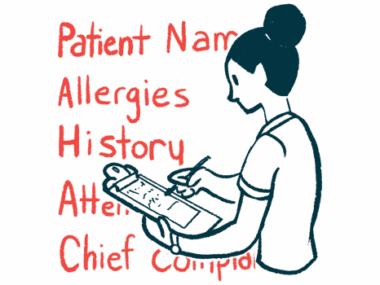Nonprofit biotech develops tool to help ALS patients find clinical trials
New ALS Trial Navigator uses mapping technology with goal to aid enrollment
Written by |

The ALS Therapy Development Institute (ALS TDI), a nonprofit biotech, has developed a comprehensive resource designed to help people with amyotrophic lateral sclerosis (ALS) find ongoing clinical trials applicable to their condition and location.
Dubbed the ALS Trial Navigator, the new tool uses mapping technology from Esri, which enables patients and their caregivers to explore an interactive map to learn where current trials are taking place. They may also receive a customized map of trials that match their clinical and demographic characteristics, as well as location preferences.
“ALS Trial Navigator helps people living with ALS, those that might face it in the future, and researchers looking to enroll trials by educating the community and providing information about current studies all around the world,” Nadia Sethi, ALS TDI’s director of community engagement, who supervised the resource’s design and creation, said in an Esri press release.
When a person is diagnosed with ALS, it is essential to rapidly find available and nearby clinical trials, because most studies only include patients within the first two years after symptom onset. Given that a diagnosis may take one year from the time the first symptoms are seen, there is a short time window for patients to enroll in a trial.
The trial map tool was created in partnership with Pat Dolan, a former solutions team lead at Ersi who has been living with ALS since 2016. Dolan missed three promising ALS clinical trials after months of searching for available studies. When he was able to find other trials, they were no longer recruiting or he was no longer eligible.
“The locations of clinics and trials are the first barrier to accessing care because patients are required to travel to the clinical trial site several times during it,” Dolan said. “What took us months to do, the navigator can do in minutes.”
Patients can find ALS clinical trials based on location, genetic profile
Besides helping patients find the closest clinical trials, the navigator also has a unique feature that identifies the studies most suitable for them. It uses information such as a person’s location, genetic mutations, and disease progression to match the individual to the enrollment criteria of trials that are still recruiting participants.
“Finding the nearest trials doesn’t do any good unless the trial is designed for your specific condition, genetic profile, and progression,” said Dolan. “This is why many trials fail.”
By helping patients find suitable studies in a timely manner, the navigator may also help trials reach their target enrollment faster, according to its developers. This in turn may help accelerate ALS research and treatment development.
“The navigator is going to change the landscape for ALS clinical trials,” Dolan said.
Among its features, the ALS Navigator includes a trial browser, which provides a searchable list of active studies around the world. Patients can manually filter this list based on certain criteria, including the placebo ratio — the proportion of patients in a clinical trial who will be given a placebo — the therapy’s route of administration, the study location, and their ALS profile.
With the information in this tool, people can start thinking about the aspects of research studies that might matter most to them and generate a list of trials that might be a fit for them so that they can have an informed discussion with their clinicians.
Users also may receive a personalized list of trials via the navigator’s Guided Trial Finder. Patients will be asked questions about their disease — including genetics, time since symptom onset, and other clinically relevant information — as well as personal preferences like how far they are willing to travel. Based on their answers, they’ll be provided with a real time list of potential trials.
“With the information in this tool, people can start thinking about the aspects of research studies that might matter most to them and generate a list of trials that might be a fit for them so that they can have an informed discussion with their clinicians,” Sethi said.
To build the resource, ALS TDI consulted a panel of ALS patients, caregivers, and people with ALS-related genetic mutations, who reviewed the design and accessibility of the resource and helped develop the questionnaire for the Guided Trial Finder.
“We’re proud of that and grateful to everyone that has helped us in shaping ALS Trial Navigator,” Sethi said in an ALS-TDI page. “There have been many advocates and families that have poured hours into the ALS Trial Navigator. Our plan is to continue to lean on the community for their feedback so that this tool can continue to evolve to best fit the needs of people living with ALS and those that may be at risk for genetic ALS.”






